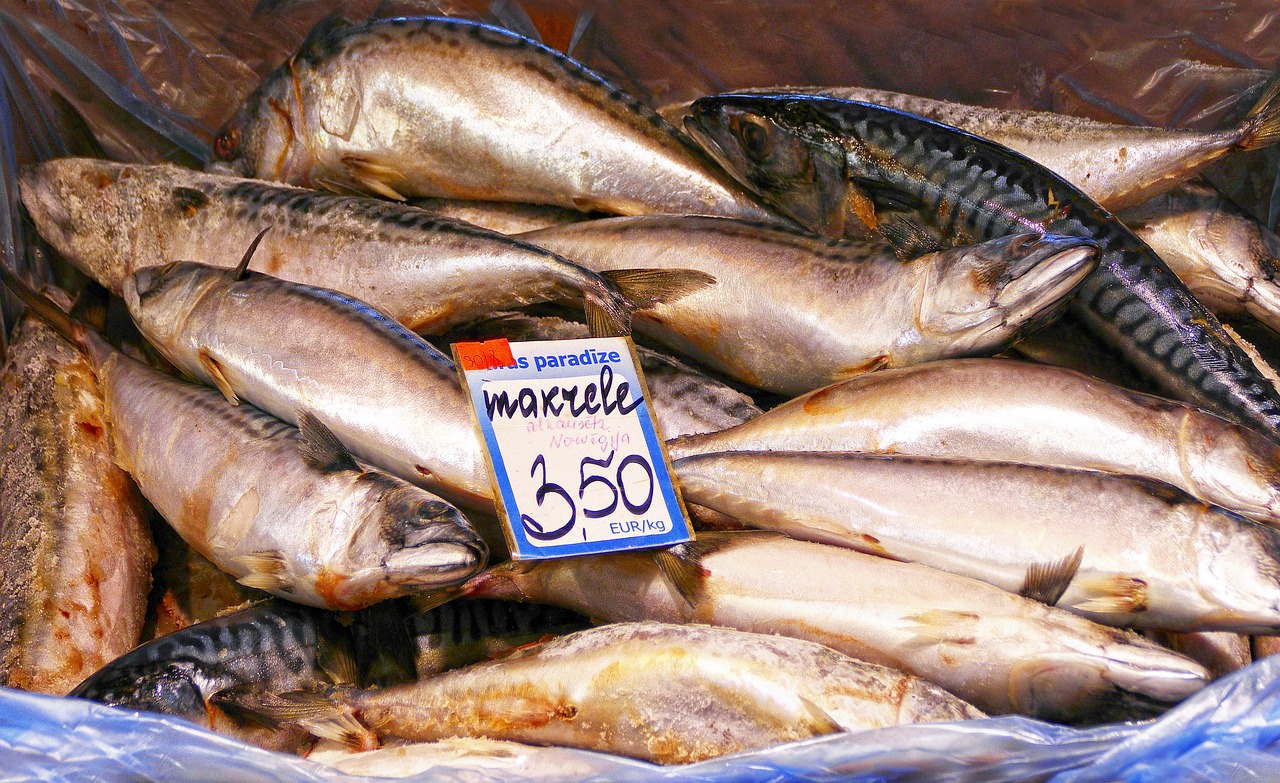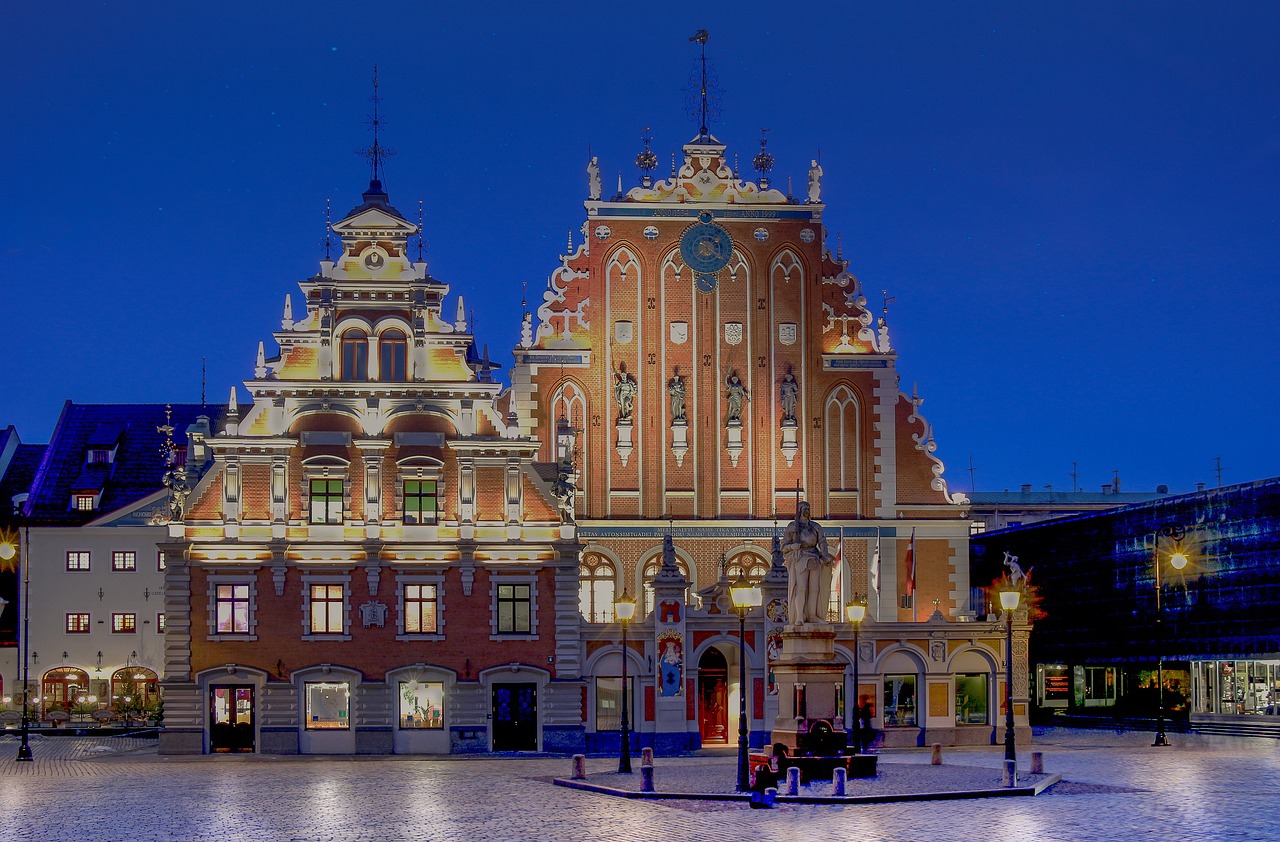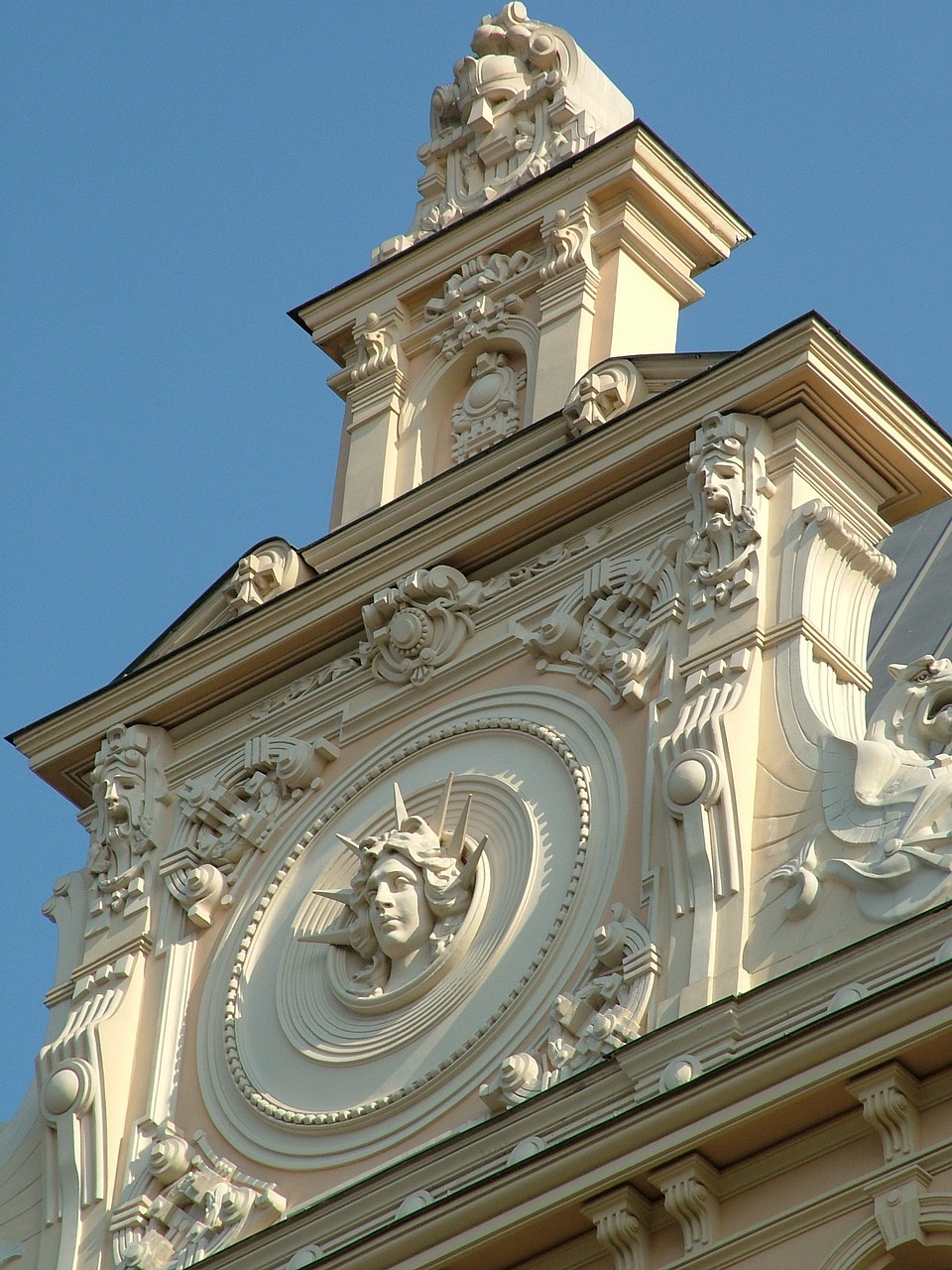Latvia Video
Local Celebrations and Holidays: What to Expect in Latvia
Latvia, a country located in Northern Europe, has a rich cultural heritage and a variety of local celebrations and holidays throughout the year. From traditional festivals to religious events, Latvians take pride in their customs and enjoy celebrating together. In this article, we will explore the vibrant and unique celebrations that you can expect to experience in Latvia.
Midsummer Festival
The Midsummer Festival, also known as Jāņi, is one of the most important and widely celebrated holidays in Latvia. It takes place on the night of June 23rd and is a time to celebrate the summer solstice. During this festival, Latvians gather in the countryside to light bonfires, sing and dance, and enjoy traditional foods and drinks. The celebration of Jāņi is deeply rooted in Latvian folklore and is a symbol of fertility and the power of nature.
- Bonfires: Lighting bonfires is a central part of the Midsummer Festival. People gather around the bonfires to sing traditional songs and perform folk dances.
- Flower Crowns: Women and girls often wear flower crowns during the Midsummer Festival. These crowns are made from wildflowers and symbolize the beauty and abundance of nature.
- Traditional Foods: Latvians enjoy a variety of traditional foods during Jāņi, including cheese, bacon, and rye bread. The most popular dish is a special cheese-filled pastry called “Jāņu siers.”
- Herbal Infusions: Herbal infusions, known as “Jāņu tēja,” are also a part of the Midsummer celebrations. These teas are made from various herbs and are believed to have healing properties.
Independence Day
Latvia celebrates its Independence Day on November 18th to commemorate the country’s declaration of independence from Russia in 1918. This national holiday is marked by various events and ceremonies throughout the country. Latvians come together to honor their history and show their patriotism.
- Flag Raising Ceremony: The day begins with a flag raising ceremony in Riga, the capital city of Latvia. The national flag is hoisted while the Latvian national anthem is sung.
- Parades: Colorful parades take place in cities and towns across Latvia, featuring marching bands, traditional costumes, and displays of national pride.
- Concerts and Performances: Throughout the day, there are concerts and performances showcasing Latvian music, dance, and theater. These events celebrate the cultural heritage of the country.
- Fireworks: The Independence Day celebrations conclude with spectacular fireworks displays in major cities like Riga and Daugavpils.
Christmas
Christmas is a cherished holiday in Latvia, celebrated with joy and warmth. Latvians embrace both Christian traditions and ancient pagan customs during this festive season. Christmas markets, decorations, and family gatherings create a magical atmosphere throughout the country.
- Christmas Markets: In the weeks leading up to Christmas, festive markets spring up in towns and cities, offering a wide array of traditional handicrafts, food, and drinks.
- Christmas Eve: The main celebration takes place on Christmas Eve, known as “Ziemassvētki.” Families gather for a festive meal, exchange gifts, and attend midnight church services.
- Midnight Mass: Attending Midnight Mass is a significant part of the Christmas traditions for many Latvians. Churches are beautifully decorated, and the service is filled with carols and candlelight.
- Christmas Tree: Latvia is believed to be the birthplace of the Christmas tree tradition. Decorating a Christmas tree, or “egle,” with homemade ornaments and candles is a beloved custom.
Easter
Easter, known as “Lieldienas,” is an important religious holiday in Latvia. It marks the resurrection of Jesus Christ and is celebrated with various customs and traditions.
- Palm Sunday: The Easter celebrations begin on Palm Sunday, when people attend church services and receive blessed palm branches.
- Decorating Eggs: Decorating eggs is a popular Easter tradition in Latvia. Eggs are dyed and intricately decorated with colorful patterns, symbols, and designs.
- Egg Rolling: On Easter Sunday, Latvians participate in the fun tradition of egg rolling. Hard-boiled eggs are rolled down hills, and the egg that travels the farthest without breaking is considered lucky.
- Easter Meal: Families gather for a festive Easter meal, which typically includes traditional dishes such as paska (Easter bread), ham, and various types of salads.
Latvian Song and Dance Festival
The Latvian Song and Dance Festival is a grand event that showcases the rich cultural heritage of Latvia. Held every five years, it brings together thousands of participants and attracts spectators from around the world.
- Choir Performances: The festival features large-scale choir performances, where thousands of singers come together to perform traditional Latvian songs. The harmonious voices create a powerful and moving experience.
- Folk Dance Performances: Folk dance groups from different regions of Latvia showcase their traditional dances, costumes, and music. The performances are vibrant and full of energy.
- Procession: The festival begins with a grand procession through the streets of Riga, with participants dressed in traditional attire, carrying flags, and singing Latvian songs.
- Concerts and Exhibitions: In addition to the main performances, the festival includes various concerts, exhibitions, and workshops that allow visitors to immerse themselves in Latvian culture.
Winter Solstice
The Winter Solstice, known as “Ziemassvētki” in Latvia, is a time to celebrate the return of light and the gradual lengthening of days after the darkest period of the year. It is a festive and magical time filled with traditions and customs.
- Lighting Candles: Latvians light candles to symbolize the return of light and hope during the Winter Solstice. Candles are placed in windows and on dining tables, creating a warm and cozy atmosphere.
- Heritage Events: Various heritage events take place during the Winter Solstice, including traditional music and dance performances, storytelling, and crafts demonstrations.
- Traditional Foods: Latvians enjoy special dishes during the Winter Solstice, such as gingerbread cookies, spiced wine, and sauerkraut soup.
- Decorations: Homes and public spaces are adorned with festive decorations, including wreaths, garlands, and ornaments made from natural materials like pinecones and dried flowers.
Riga City Festival
Riga City Festival is an annual celebration of the capital city of Latvia, Riga. This vibrant event showcases the city’s cultural, historical, and artistic heritage and attracts both locals and tourists.
- Concerts and Performances: The festival features a wide range of concerts and performances, including music, dance, theater, and street art. Venues throughout the city come alive with artistic expressions.
- Street Processions: Colorful processions wind their way through the streets of Riga, featuring dancers, musicians, and costumed performers.
- Fireworks: The Riga City Festival culminates with a breathtaking fireworks display over the Daugava River. Spectators gather along the riverbanks to witness the spectacular show.
- Open-Air Markets: Open-air markets offer a wide variety of local products, including traditional foods, handicrafts, and souvenirs.
Latvian National Day
Latvian National Day, also known as Proclamation Day, is celebrated on November 18th to commemorate the proclamation of the Republic of Latvia in 1918. It is a day of national pride and reflection on Latvia’s history and achievements.
- Flag Raising Ceremony: The day begins with a flag raising ceremony, similar to the Independence Day celebrations. The national flag is hoisted while the Latvian national anthem is sung.
- Public Gatherings: People gather in public squares and parks to participate in various events, including concerts, speeches, and exhibitions that showcase Latvian culture.
- Historical Reenactments: Historical reenactments of key moments in Latvia’s history take place in different locations, allowing people to experience and learn about the country’s past.
- Family Activities: Families often spend the day together, enjoying picnics, visiting museums, and engaging in outdoor activities.
Martins Day
Martins Day, or Mārtiņi, is a traditional Latvian holiday celebrated on November 10th. It marks the end of the agricultural year and the beginning of winter. Martins Day combines both pagan and Christian traditions.
- St. Martin’s Day Procession: The day begins with a procession led by children carrying lanterns. The procession moves through the streets, singing songs and reciting rhymes.
- Feast: After the procession, families gather for a festive meal that typically includes roasted goose, sauerkraut, and gingerbread cookies shaped like St. Martin on horseback.
- Charitable Activities: Martins Day is also associated with charitable activities. People donate food and clothing to those in need, reflecting the spirit of generosity and compassion.
- Fortune-Telling: It is believed that on Martins Day, certain rituals can reveal glimpses of the future. One popular tradition is to pour molten lead into water and interpret the resulting shapes.
Latvia Image 1:

Autumn Equinox
The Autumn Equinox, also known as “Māras zeme,” is a time to celebrate the harvest and give thanks for the abundance of nature. Latvians embrace the changing seasons with various customs and traditions.
- Harvest Festivals: Harvest festivals take place in rural areas, where people come together to showcase their agricultural produce, traditional crafts, and culinary delights.
- Herbal Rituals: Latvians have a deep connection to nature and its healing properties. During the Autumn Equinox, they engage in herbal rituals, such as making wreaths from medicinal plants and herbs.
- Feasting: A bountiful feast is prepared using fresh produce from the harvest. Traditional dishes like sauerkraut, pickled vegetables, and homemade bread are enjoyed.
- Nature Walks: Latvians take advantage of the beautiful autumn scenery by going on nature walks, collecting colorful leaves, and appreciating the changing landscapes.
Summer Solstice
The Summer Solstice, or Jāņi, is a traditional Latvian holiday that celebrates the longest day of the year. It is a time to honor nature and enjoy the beauty of the summer season.
- Flower Wreaths: Latvian women and girls create and wear flower wreaths during the Summer Solstice. These wreaths are made from wildflowers and symbolize the beauty and vitality of nature.
- Herbal Baths: It is believed that bathing in a mixture of healing herbs on the eve of the Summer Solstice can bring good health and fortune. Many Latvians take herbal baths as a part of their celebrations.
- Traditional Folk Songs and Dances: Singing and dancing play a significant role during the Summer Solstice. Traditional folk songs and dances are performed throughout the night, creating a joyful and festive atmosphere.
- Jumping Over Bonfires: Jumping over bonfires is a popular tradition during Jāņi. It is believed to cleanse and purify individuals, while also warding off evil spirits.
Latvia Image 2:

Conclusion
Latvia is a country with a rich cultural heritage and a deep appreciation for traditions and celebrations. From the Midsummer Festival to the Latvian Song and Dance Festival, each celebration offers a unique glimpse into the country’s history, customs, and values. Whether you visit during the vibrant summer months or the enchanting winter season, you can expect to be immersed in the warmth and joy of Latvian celebrations.
References
– www.latvia.travel
– www.liveriga.com
– www.rigacommunication.lv
– www.latviansonline.com
– www.latvia.eu


